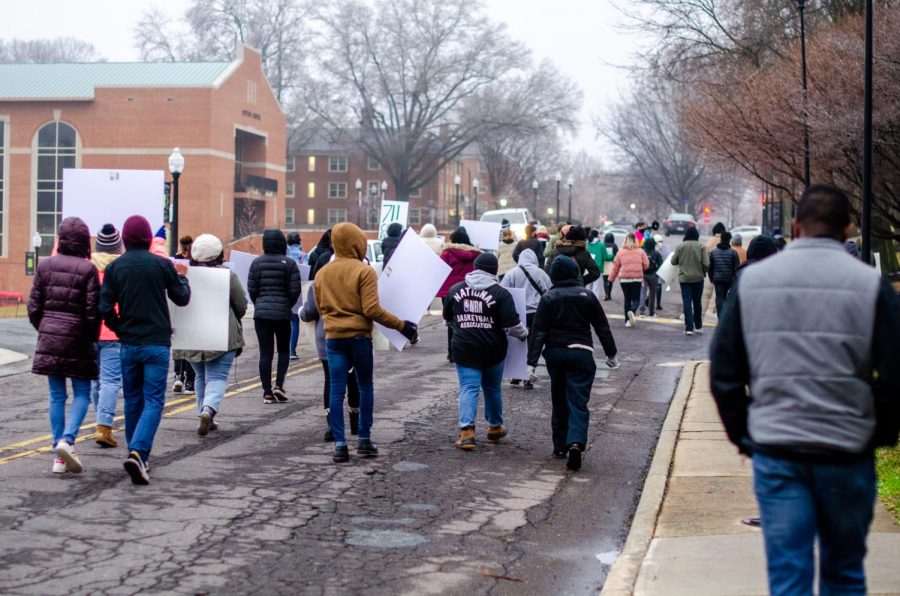Staff Editorial: Communication among administrators, faculty and students must improve
February 15, 2021
Communication between administrators, faculty members and students has been abysmal this semester. Our campus has surpassed the total number of COVID-19 cases from last semester in three weeks, students and faculty members held a protest against new quarantine procedures and some students have packed their bags and left for home, fearful of what the remainder of the semester might look like.
This lack of communication is unacceptable. Even more important to note, the situation that the university finds itself in today was avoidable — to some extent. It is vital for our school to promote a transparent system of communication between university administrators and the thousands of individuals whose lives are directly affected by the decisions that these administrators make.
The lack of transparency that exists between administrators, faculty members and students is no secret. According to multiple professors, the same day that fraternity and sorority members were told via email that they were responsible for approximately 90% of on-campus COVID-19 cases, faculty members were informed in a briefing that there was no one group responsible for the recent surge in cases.
Even worse, the aforementioned email that highlighted the impact that Greek Life had on the spread of the virus around campus was only sent to students who were involved in Greek Life. This choice of selective communication ostracized faculty and non-Greek affiliated students, failing to provide them with vital information regarding the state of affairs on campus.
A few days later, a rumor regarding a potential switch to Red Status spread across campus like wildfire, though there was no truth to the statement at all. There was nothing released by the administration to squash this rumor until the night of Sunday, 2/7, almost a day-and-a-half after the rumor’s beginning.
As a student-run newspaper, the Old Gold & Black is responsible for offering weekly news coverage, dispelling rumors and investigating deep-set controversies. It is a role we take with great pride, as our unbiased approach to reporting allows us not only to break news, but to spark meaningful conversations between students and administrators.
But as a student-run newspaper, there is no reason for us to break stories that administrators could convey directly to students themselves.
It is for these reasons that we implore university administrators to prioritize disseminating information in a more timely and consistent manner. Only once doing so becomes the status-quo can more expansive feelings of trust return across all areas of campus.
Our student body recognizes that there is little precedent regarding how an academic institution is meant to advance safely amid these challenging circumstances. Given the fluidity of the moment and the ever-changing nature of the situation at hand, it is understandable that administrators don’t always have immediate answers to our questions.
Not having the answers to our questions is one thing, but letting important questions fall by the wayside is another entirely. Students, staff and faculty must be kept informed of policy changes before they are actually enacted.
Altering the communication practices that are currently implemented at Wake Forest is an immediate necessity, as information regarding safety cannot remain exclusive. Doing away with behind-closed-door conversations and introducing inclusive, roundtable meetings and briefings is a realistic and worthwhile goal.
Our campus’s health, safety and well-being depend upon this much-needed, system-wide change. Whether that comes in the form of student representatives sitting in on COVID-19 briefings, or press releases regarding new COVID-19 guidelines being sent not only to the Office of Communications and External Relations but to the news editors here at the OGB, does not matter. What matters is that individuals who work, teach and study here deserve to have their voices heard and their perspectives considered. After all, the decisions being made directly affect their livelihoods as well.
For Wake Forest to regain the trust of students, faculty and staff, the university must prioritize the truth and ensure that not one more complaint or concern falls on deaf ears.

















